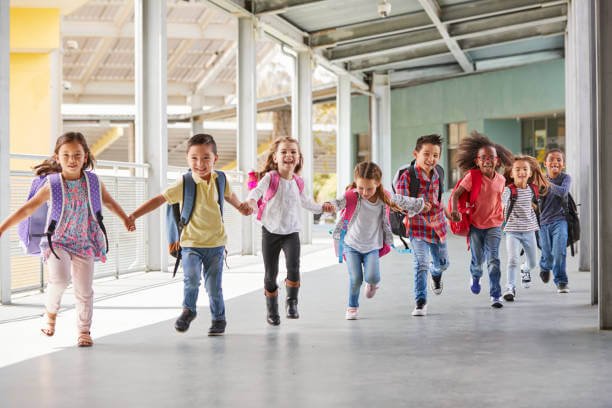Students in kindergarten through eighth grade at The Wesley School in Los Angeles are learning how to combat climate change caused by humans while also getting practical experience producing dirt through a composting programme.
All of the school’s leftover food waste has been placed in composting bins for the past year, as opposed to a landfill, where it would simply break down and release gases that warm the globe.
The school’s composting programme, according to Jennifer Silverstein, a social worker, therapist, and member of the Climate Psychology Alliance of North America, fulfils several requirements for successful, affirmative climate teaching.
“All these terrible things are happening, but there are all these adults out there who are really actively trying to make it better,” is what children should be taught instead of just “all these horrible things are happening.” And here are some ways you can get involved,” Silverstein continues.
The school launched its composting programme in 2022, and in October of this year, it celebrated by revealing the contents of several five-foot-tall containers.
Alright! Do you want to open up this baby? claims Steven Wynbrandt, a local farmer and composting expert who has provided programme assistance to the school.
It is overwhelming how many students respond “Yeah!” to his inquiry.
As Wynbrandt cuts the cords holding the container shut, they barrage him with inquiries: “Will it emit an odour?” “What will it look like?” Will things come to a head?
The compost pours out of the container, rich and black.
“It doesn’t smell at all,” a child exclaims. “Earthy scent!”
For the environment, the 5,200 pounds of food waste that were saved from a landfill are fantastic news. One of the most powerful gases that warms the earth is methane, which is produced when food decomposes in a landfill. However, composting organic material results in a reduction in methane released into the environment.
Staff members at Wesley School could have easily disposed of the school’s food waste in a green bin provided by the city. Recycling of municipal food waste is mandated by California law. According to science teacher Johnna Hampton-Walker, it would have been easier to hide it, but it would have missed the point.
“They don’t see it when it’s that invisible,” the woman claims. They are aware, but it doesn’t really register.
Finn, a sixth grader, was deeply affected upon seeing the completed compost pile.
He says, “That’s my orange chicken in there.” That isn’t just any food, though. My food is somewhere in there.
The compost will be applied to campus plants by the school. What’s left will be donated, with some going to families that wish to use it at home.
Kingston, a fifth student, was thrilled to hear that his food waste will be used to cultivate fresh food on campus. “It is satisfying to be contributing to the betterment of the planet, rather than simply observing its devastation,” he remarks.
That’s what Wynbrandt is hoping for. His goal is to establish these composting programmes at more schools, such as The Wesley School. Regarding the climate catastrophe, Wynbrandt states, “A lot of us, especially kids, feel really overwhelmed and powerless and don’t know what to do.” “This is a serious existential issue. What can we do to change it? How can we create a furrow?
Building young people’s tolerance to new, often tragic facts is a crucial step in assisting them in realising the seriousness of climate change caused by human activity, according to therapist Jennifer Silverstein. She claims that allowing children to spend time outside in nature and engage in group activities helps during those trying conversations.
Sloan, a fifth grader, chose to take climate action outside of school after feeling so empowered by the school’s composition programme. Sloane recalls, “We did a lemonade stand at our friend’s house and we made over $200, and we donated it to the Natural Resources Defence Council,” along with a few other fifth graders. Additionally, they assisted in the creation of a petition to switch out the school cafeteria’s plastic forks and spoons for compostable ones.
Leo, a fifth grader, feels the composting programme has been beneficial.
“It just helps me sleep at night to know I’m a part of something good,” he says. “Everything will be fine and everything will be OK if we can just work together.”
In October, it took two hours to empty the compost container and get it ready to hold the leftover lunches for the following day. The food waste that is decomposing still fills the other four containers. Each container has a decorated poster on the outside that shows when it can be opened in the new year so that the campus’s upcoming plant generation can take advantage of the rich soil.




